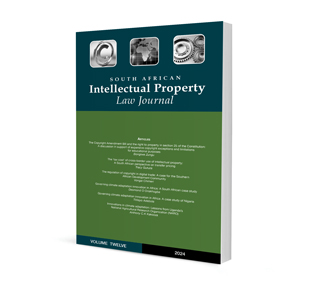Compulsory Patent Licensing and the South African Patents Act: Navigating the Challenges and Exploring Reform Options

Compulsory Patent Licensing and the South African Patents Act: Navigating the Challenges and Exploring Reform Options
Author JAD Peÿper
ISSN: 2521-2591
Affiliations: Director in Legal Services, University of South Africa
Source: South African Intellectual Property Law Journal, 2025, p. 73-91
https://doi.org/10.47348/SAIPL/v13/i1a4
Abstract
This article critically examines the practical failure of South Africa’s compulsory patent licensing regime to address abuses of patent rights under s 56 of the Patents Act 57 of 1978. Despite the statutory grounds for relief, compulsory licensing has remained largely inaccessible in practice, with every reported application since 1978 proving unsuccessful. The article identifies the key structural and procedural barriers that deter or defeat applicants, including excessive evidentiary burdens on ‘interested persons’, the absence of working-disclosure obligations on patentees, the treatment of essential commercial information as confidential, and the rigid requirement that all matters be heard before the Commissioner of Patents. It further shows how judicial interpretation has raised the threshold for relief by requiring proof of public harm even where the Patents Act appears to provide per se grounds of abuse, thereby weakening compulsory licensing as a corrective tool. The article ultimately proposes targeted legislative and procedural reforms aimed at restoring compulsory patent licensing as a viable mechanism for curbing patent abuse, improving transparency and evidentiary access, and aligning the patent system with its public interest function. While TRIPS flexibilities provide contextual support for domestic reform, they are not the central focus of this analysis.
